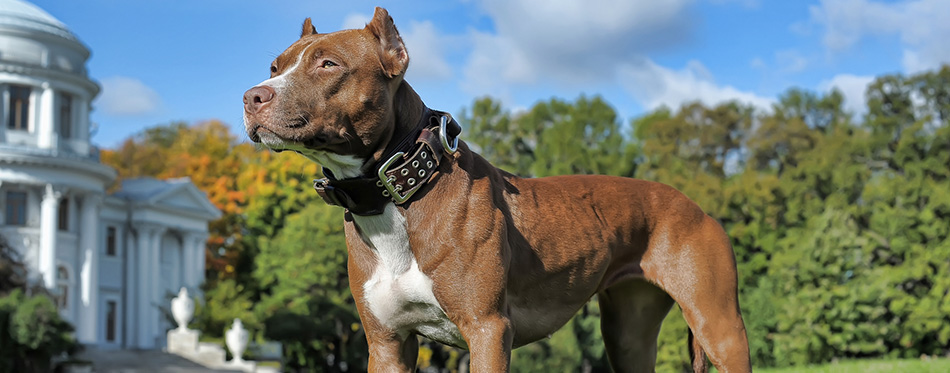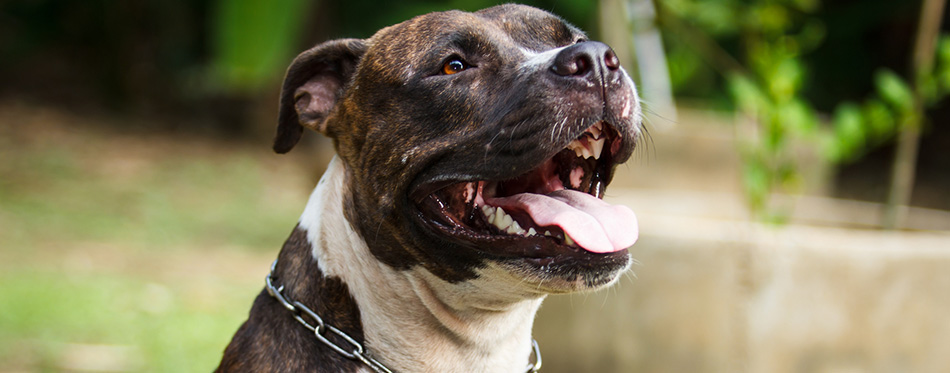A cross between two of the fieriest pure breeds – the Pitbull and the Chihuahua – Chipits are lovable “designer dogs” that are fast becoming a family favorite due to their unyielding loyalty and fun-loving temperament. Although skeptics regard the existence of the Chipit as an abomination, believing dogs of the breed to pair a Pitbull’s “high prey drive” with a Chihuahua’s “snappy” personality, we think rather differently. Life with a Chipit by your side is substantially better than life without one, and we wish to prove why through discussing the history, quick facts, and things you should know about this endearing little canine below.
History of the Chipit
In comparison to other breeds, the Chipit’s origin story is fairly short, only spanning back to the 1800s when breeders started producing “designer dogs” – a cross between two purebred dogs. This fad commenced with one sole objective in mind: to create a dog whose intelligence matched that of a poodles with a coat that didn’t drive dog owners to distraction because of incessant shedding. The result? The beloved Labradoodle – a breed loved by many.
Referring back to the Chipit, we believe the breed to have originated around some point in the 1900s –there isn’t an official record detailing when the first Chipit was bred due to the explosion of “designed dog” breeds that came to exist around the same time. However, it can be speculated as to why the Chipit was bred; to enhance the incredible characteristics of its parents. Combining the Pitbull’s natural athleticism with a Chihuahua’s lively demeanor was, evidently, a great decision from breeders and produced one of the most wonderful breeds. But to understand the idiosyncratic traits associated with the Chipit breed in greater depth, we must first analyze both parents of this designer dog.

Who are the Parents?
Chihuahua: As the smallest dog breed recognised by the majority of kennel clubs, it is the Chihuahua’s minuscule frame that has led to its popularity. Members of this breed often become frightened in the company of larger dogs due to their diminutive size and are known for sometimes snapping at strangers. However, their wonderfully expressive nature and vibrant, comical personalities make up for these tiny temper tantrums when out on walks.
Our favorite example which we believe exemplifies their unique personality is Chihuahuas’ tendency to burrow under blankets, as the “featheriness” of their coat means they often can’t shake the chill. If they’re not snuggled up under a blanket somewhere, they’ll probably be getting cuddled by a family member!
The breed moved over to the US from Mexico as dog lovers from America, upon discovering the Chihuahua, became captivated by their tiny size and humungous personalities. And we’re certainly glad they did, as now we’re lucky enough to spend time around these dynamic canines!
Pitbull: This breed initially originated from England as a fighting breed from the bull-and-terrier – an extinct breed that evolved into several cross breeds over time. Pitbulls have a wonderful temperament and are widely known for being wonderful family companions. Members of this breed particularly adore children – and that is why these courageous dogs even became nicknamed as “Nanny Dogs”
Unfortunately, the existence of this loving breed has been put to the test for hundreds of years. The Pitbull breed has long suffered from their reputation of being bred for fighting to the point that attempts to overturn a thirty-year ban of the breed in Denver were repealed in just February 2020. It’s important to acknowledge that a Pitbull, just like other dog breeds, will only become aggressive if raised to be. These dogs are in no way innately aggressive: quite the opposite. In fact, accordingly to the reputable ASPCA, domesticated pit bulls are “noted for their gentleness, affection and loyalty”.
So why are Pitbulls still persecuted till this day due to being bred in the past for fighting (which we humans are also responsible for)? Unfortunately, the notoriety of the breed attracts a small minority of irresponsible (and often cruel) dog owners who fail to properly socialise and train these dogs, consequently resulting in a Pitbull to become aggressive. We only hope for a future when the Pitbull breeds manage to shed this stigma and become known for the wonderful dogs that they are.
Quick Facts
Bringing a Pitbull Chihuahua mix puppy into your home won’t come cheap: As a result of their engaging and lovable nature, Pitbull Chihuahua mixes are widely sought after. Ergo, a puppy of this lineage won’t come cheap. To purchase a Chipit from a reputable breed will cost in the vicinity of $800 to $1000.
The Pitbull Chihuahua Mix is known by several nicknames: Some nicknames such as the “Mexican Bulldog” and Chitbull” are pleasant enough, whereas the sobriquet “Pithuahua” certainly doesn’t trip off the tongue! Calling a chihuahua mixed with a pitbull pup a “Chipit” is what we believe to be the cutest variation!

Things You Should Know
Chipits are banned in several states: As discussed above, one of the Chipits parents, the Pitbull, is banned from several states. These bans aren’t negotiable and are upheld by breed-specific legislation (often abbreviated to BSL). Yet you may not be aware that the Chipit, even though it’s a mixed breed, may also not be welcomed into some counties. For example, in Fruitland, Idaho, a dog that contains any lineage of the banned dog breed is forbidden under BSL. Similarly, Chipits would be banned in Cameron, Missouri, as a result of them even possessing the characteristics of a banned breed (obviously the banned breed in question would be the Pitbull). Therefore, it’s important to look into your state, municipality, and county laws to guarantee your Chipit will be welcomed into your area with open arms.
Chipits love to snuggle: Searching for a cuddle buddy to snuggle up in front of the television with? A Pitbull Chihuahua mix will love nothing more than plonking down on your lap for the night. In all seriousness though, if you aren’t the cuddly type then don’t get a Chipit.
Training
Chipits are a great choice of dog for first-time dogs owners as they’re moderately easy to train. Plenty of positive reinforcement is required to train your Pitbull Chihuahua mix, and your pup will be sure to love all the attention! As members of this breed possess high levels of intelligence, they’ll be delighted to show off what they’ve quickly picked up in training sessions to their family.
Check out our guide on Dog Training Books for more info.
Feeding
Chipits require an average amount of food for their small-medium size – around 1 1/2 to 2 1/2 cups of dry dog food a day. It’s better for their digestive tract if mealtimes are spread throughout the day, so two or three mealtimes are recommended.
For more options, check out our detailed reviews of Dog Food For Chihuahuas, Wet Dog Food and Dry Dog Food.
Exercise
It would be unfair to purchase a Pitbull Chihuahua mix if you’re unwilling to grant them the correct amount of exercise time. As Chipits are an extremely active breed, an hour of walking should be the minimum amount of time. Combined with one play session, this should give your pup the mental stimulation they crave.
Socialization
As Chipits sit among what experts and breeders would classify as dogs breeds who are more prone to being overprotective, they must be well trained to ensure they don’t pick up this trait as they age. Receiving an optimum amount of socialization will likewise alleviate any risk of your Pitbull Chihuahua mix struggling to mix with other dogs over time. With the right amount of imput, they’ll turn into good-natured dogs who love to be in the company of other pups and multi-pet households.
Grooming
Pitbull Chihuahua mixes usually possess shorter coats and boast glossy and smooth hair. In this instance, it’s very easy to groom these Chihuahua Pits. However, it isn’t uncommon to find Chipits who boast a long coat. Thankfully, even those with longer locks keep shedding to a minimum, making Pitbull Chihuahua a relatively easy breed to keep clean.
With concern to other grooming tasks, an owner only has to trim a Chipit’s nails around once a month and bathe them every eight weeks. If your Chipit has inherited the floppy ears belonging to their Pitbull parent, you must give their ears a weekly clean. For more options head over to our dog grooming guides, such as dog bathtubs, dog ear cleaners, dog shedding brush and dog shampoos.
Health
Although Pitbull Chihuahua mixes generally keep in good health, like every other breed they are more prone to some health conditions more than others. Here are a few to watch out for below.
Hip Dysplasia: Chipits have inherited this common skeletal condition from their Pitbull parents. Hip dysplasia, which eventually leads to arthritis, is initially caused by a loose hipbone to thighbone connection. If your Pitbull Chihuahua mix suffers from this crippling disease, it should be obvious as they struggle to climb stairs, find it difficult to get up, and display reluctance to go out a walk.
Patellar luxation: One of the most common health issues of the Chihuahua breed, patellar luxation is when the kneecap (patella) slips out of place and has been passed down to the Chipit. Due to varying degrees of severity, it can be difficult to identify at first that your dog is suffering from this condition, and the earliest indication is if your Pitbull Chihuahua mix hops about whilst holding up one of their back legs.

Heart Problems
Patent ductus: When the ductus arteriosus (an opening in the heart between two major blood vessels that allows blood to move away from the lungs before birth) fails to close as it should as a puppy, both the heart and lungs are forced to work harder. Likewise, the blood pressure in the arteries is also increased.
Mitral valve disease: This heart condition reduces the heart’s efficiency by pushing the valve edges to the limit due to the high blood pressure generated when the left ventricle contracts. Symptoms that indicate that your dog may be suffering from this disease include quick breathing and disproportionate amounts of panting for the activity they’re carrying out.
Temperament
If you wish to understand a Chipit’s temperament in greater detail, taking a peek at the American Temperament Test Society’s breed statistics is a good place to start. The data measured is indicative of each breed’s capacity to respond to different everyday situations. With concern to both parents of a Pitbull Chihuahua mix, 87.4% of Pitbulls successfully passed in comparison to only 69.6% of Chihuahuas. Accordingly, if your Chipit tends to become angsty towards other dogs or humans on walks, this isn’t due to the genetical composition of their Pitbull genes but of their Chihuahua parent!
To ensure that this Chihuahua tendency to become overprotective on walks is quashed early on, a Chipit must be trained and socialized from an early age so they feel comfortable around strangers. However, with the right training, a Chipit is an incredible dog to have around.
Interestingly enough, it’s not uncommon for Chipits to have a favorite family member – another idiosyncrasy picked up from their Chihuahua parent. However, this inclination can be curbed with the right amount of socialization. In fact, around young children in the family, Chipits take after their Pitbull parent and become somewhat of a “nanny dog” themselves!
All in all, a typical Chipit will be wonderfully opinionated and expressive around the home and out and about. They’re an incredibly active breed and have the intelligence to match. Those who own a Chipit already will know that it only takes matter of minutes for Pitbull Chihuahua mixes to hold a spot in your heart forever. If you’re ready to give a Chipit the active and mentally stimulating lifestyle they deserve, we can think of no better dog to welcome into your home.

